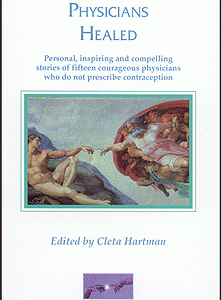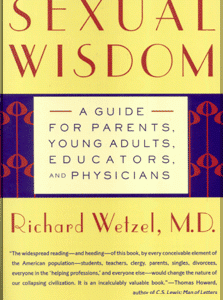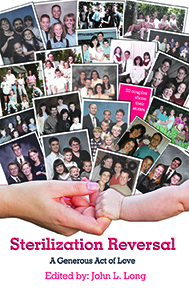Having a baby is a wonderful thing. Children are great. No matter what the circumstances are, no matter who the mother or the father is, no matter how they were conceived, a child is a gift from God, and an occasion for celebration. In fact, the more children God sends you, the more He blesses you.
Do any of these statements seem odd, deranged maybe, or just a little weird to you? Can rational people really believe that every conception/birth is a sign of God’s favor? Of course we can. Why? Because we believe in God, and our God simply loves people, and the more, the merrier.
So what God is this that wants lots and lots of children? Hasn’t He ever heard of over-population? Doesn’t He know that it is now the duty of all decent people to limit their progeny to two? What kind of God is this anyway? It’s the God of the Bible. Come with me, and I’ll show Him to you.
From the very beginning, God made it pretty clear that he wants children, and lots of them. In Genesis he told Adam and Eve to “be fruitful and multiply, and fill the earth, and subdue it.” (Genesis 1:28) What is even more striking is that when God blesses someone in the Bible, children are usually part of the blessing. Noah was told, “Be fruitful and multiply, and fill the earth” (Genesis 9:1). In Genesis 17:5-6 Abram was promised, “For I will make you the father of a multitude of nations. And I will make you exceedingly fruitful, and I will make nations of you, and kings shall come forth from you.” When Rebecca left home to marry Isaac, her brother blessed her saying, “May you, our sister, become thousands of ten thousands, and may your descendants possess the gates of those who hate them” (Genesis 24:60). When Isaac blessed Jacob he said, “And may God Almighty bless you and make you fruitful and multiply you, that you may become a company of people” (Genesis 28:3). This expressed wish of God for human procreation found its way into the Psalms too. In Psalm 127 we read, “Behold, sons are a gift from the Lord; the fruit of the womb is a reward.”
So children are a blessing: God’s gifts to people he loves and has great plans for, like the patriarchs of the Old Testament. What is it about children that makes them so good for marriages and societies?
Children help keep marriages together. Marriages are hard work, and after a couple is married, there are a lot of tough issues and trouble spots they will have to work through. Most marriages that end in divorce do so within the first two years. It’s very easy to just give up, just walk out on the whole situation. Once you’ve walked out on someone, it takes a lot of courage to go back and make things right. No matter how much you love your spouse, sometimes it just doesn’t seem worth it. A child can give a couple the extra incentive they need to work through the rough spots, to keep on trying when nothing seems to work. No matter how much her mother is driving you nuts, there’s still a little girl whose smile you can’t bear to miss. No matter how upset you are with his father, there’s still a little boy who can’t go to sleep unless you tuck him in each night. I know that there are some marriages, especially those in which one partner is abusive, that can’t be saved, but for many couples a child can mean the difference between divorce court and a deeper, stronger love they both fight for.
Children make their parents better people. Suddenly there is this little person who needs everything. He can’t feed himself or go to the bathroom by himself. If she’s cold she doesn’t know what to do to get warm. If he’s in pain he can’t do anything about it. New parents quickly learn the virtue of unselfishness. People who just months before had thought only about their spouses and themselves, now spend every other moment thinking about this child who needs so much. New parents also quickly begin to reevaluate their values and standards. The first time you hear your four-year-old repeat a cussword he learned from you, it’s quite a wake up call. Trying to explain to your five-year-old why it’s wrong to tell a lie makes you pay a lot more attention to your own honesty. It all adds up, and before you know it, you’re a different, and much better person. Parents also quickly learn that they just can’t do it all. If you spend two hours playing with your toddler, laundry doesn’t get done. If you spend hours gardening so you’ll have fresh vegetables for your family, dinner is late and the house is a wreck. It’s a constant trade off. To preserve their sanity, parents learn what is really important. They learn to do what they can and leave the rest to God.
Children benefit the economy. It costs a lot to raise a family. Everybody knows that. The secular media periodically issues new bulletins about how much it costs to raise a child until they’re eighteen, how the cost of a college education is constantly rising, etc. ad nauseam. It’s pretty much all true. There probably aren’t many couples who will tell you that their standard of living is higher because they chose to have a large family. Many couples, if they think about it a while, will tell you that children and their needs gave them the determination, ambition, and self-discipline to excel in their vocations and thus achieve a much higher standard of living than they had expected. A father more often than not works longer hours, and is a more stable and reliable worker, because he needs that paycheck to feed his family. The family buys large quantities of shoes, clothing, food, electricity, and hosts of other products, thus stimulating the economy. At the same time, the family is often quite concerned about saving money, which provides venture capital for new businesses, which employ more people, which stimulates the economy. Large families provide the next generation of workers. Someone is going to have to be working to support the parents as they grow older. Already our society is feeling a crunch caused by smaller and smaller families. With few young people in the work force, and growing numbers of people reaching retirement age, the Social Security system becomes increasingly precarious.
Anytime you find a family with children over a wide age range, you will find an amazing phenomenon. The older children take care of the younger ones. Teenagers and pre-teens change diapers, baby-sit, cook meals, do laundry, clean, and take turns reading the endless stream of story books toddlers demand. Children in elementary school help do dishes, run errands, and make the countless trips upstairs and down for that one thing Mommy forgot. As soon as a child can walk, he or she can start helping. Often older children start teaching the younger siblings the skills necessary for life, like tying your own shoe laces, and drinking out of a cup. They also pass on moral lessons like honesty or the finer points of the definition of “sacrament.” Fights between younger siblings get mediated by the older children, and any undesirable behavior on the part of one individual tends to be very quickly quashed by his or her brothers or sisters. They quickly develop a sense of fairness.
Children make people settle down and become productive members of society. While single people can be wonder workers, it is families that are the building blocks of society. Children are the great motivators for a lot of the good works performed in our world. Parents work hard to build a strong economy, to clean up the environment, to make sure that our workplaces are safe, to get rid of poverty and hunger because they don’t want their children to go cold and hungry, to get hurt on the job, or to be poisoned by pollution. Parents fight to stamp out sexual crimes against women and children because they don’t want their daughter to be raped or sexually harassed. Parents fight crime because they don’t want their son to get mugged. They want to leave their children a better world than the one they have today. Much of the progress that has been made against the great social evils of our day has come about because of concern for children. When children are not a priority, when their numbers are decreased as a result of contraception, sterilization, and abortion, there are fewer reasons for adults to cooperate toward solving community problems. Without this community focus, crime and immorality increase.
Children are highly entertaining. Anyone who has watched a toddler trying earnestly to climb up on a chair, or push a button through its hole knows this. Little children are hilarious. Children see the whole world as something fresh, new, and incredibly exciting. Being privy to their highly original observations is one of the greatest pleasures available. They also live without the prejudices and preconceptions that have become part of us. Seeing something like a four year old trying to teach the cat to sit can keep you chuckling for months. In a large family, the best entertainment in the world is waiting for you every time you turn around. Try it sometime.
Children, in short, draw us into the mainstream of life and put us in solid contact with the things that matter: honesty, commitment, generosity, self-giving. These are the virtues that make human life healing and delightful.






